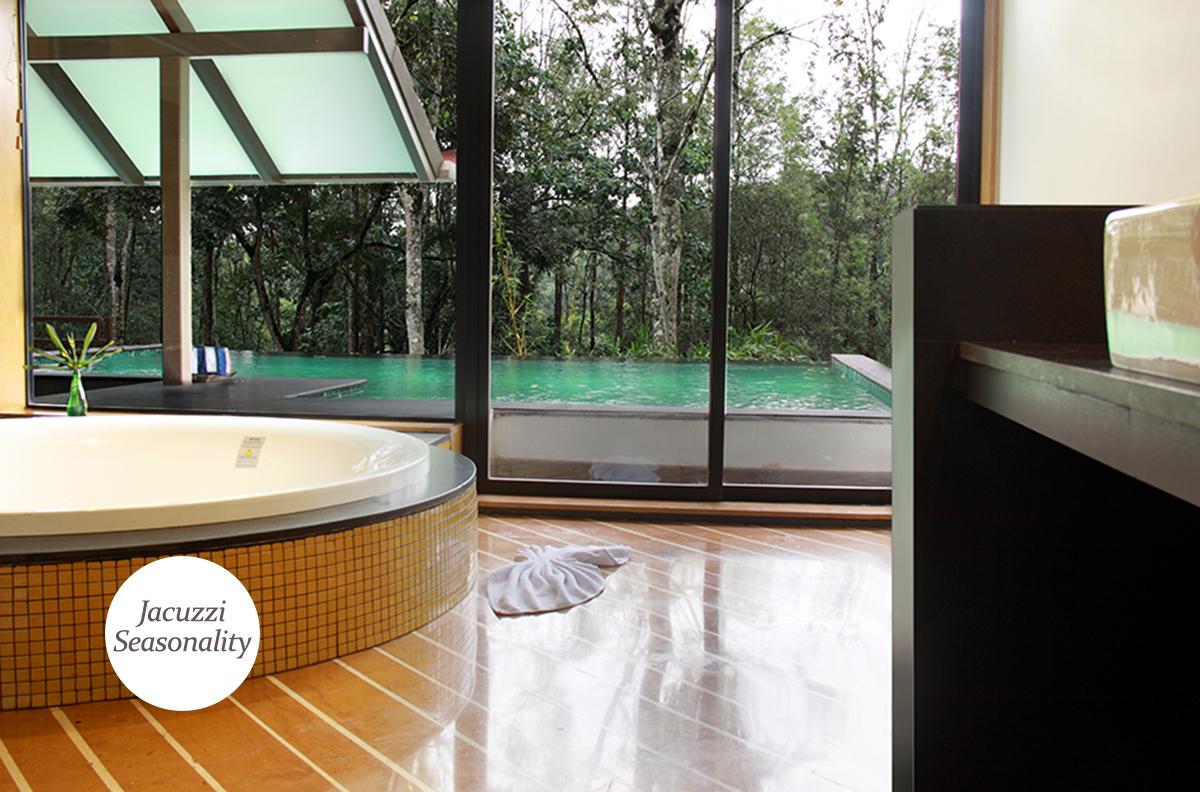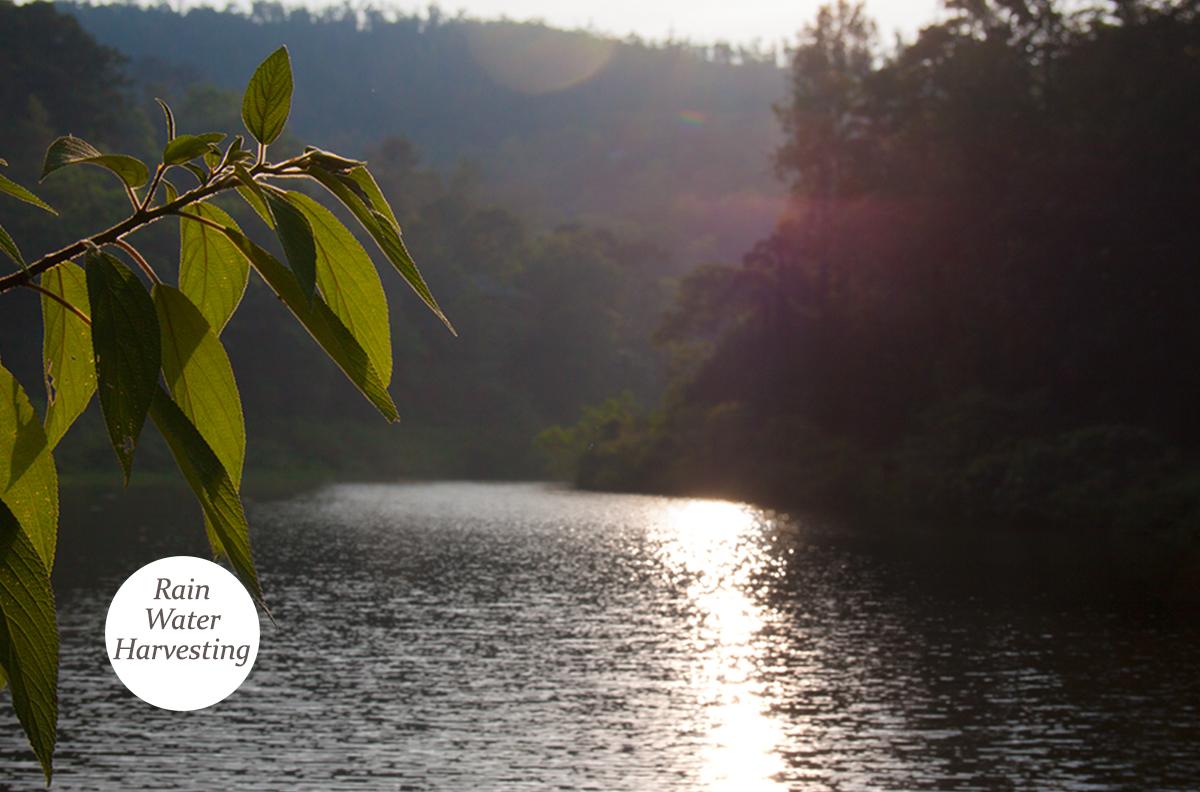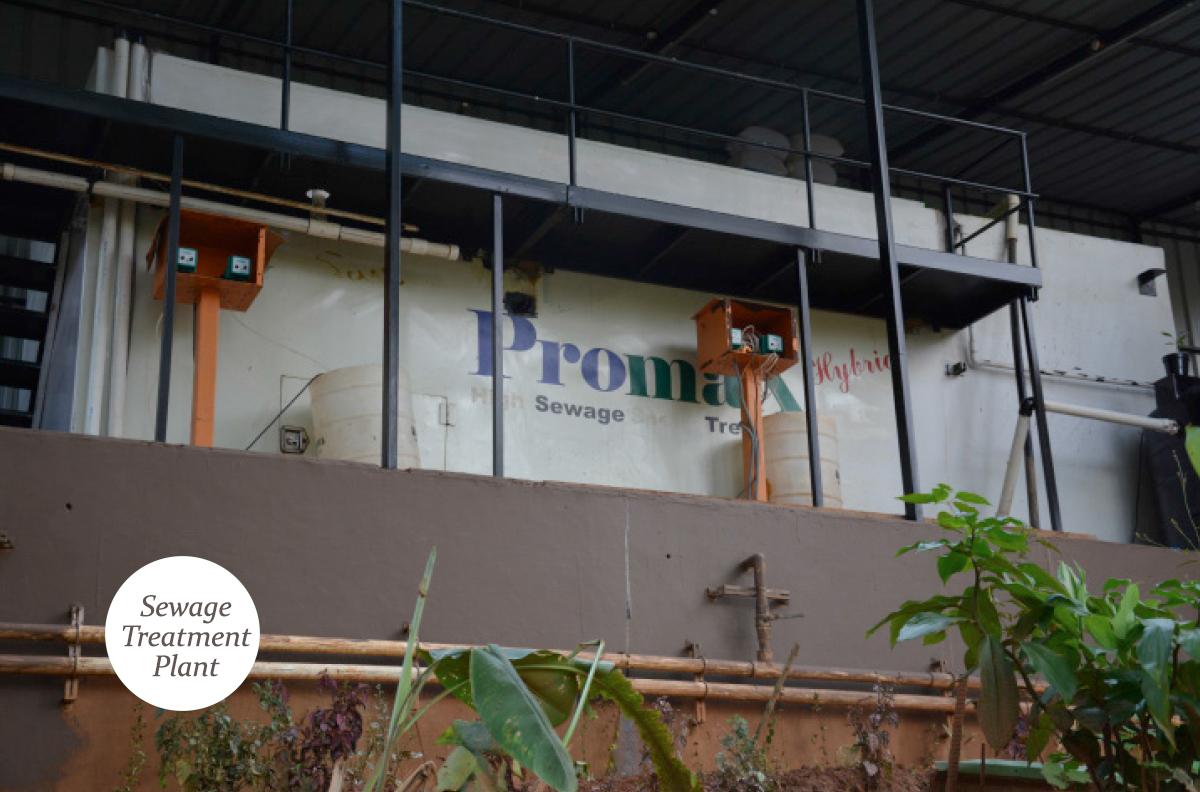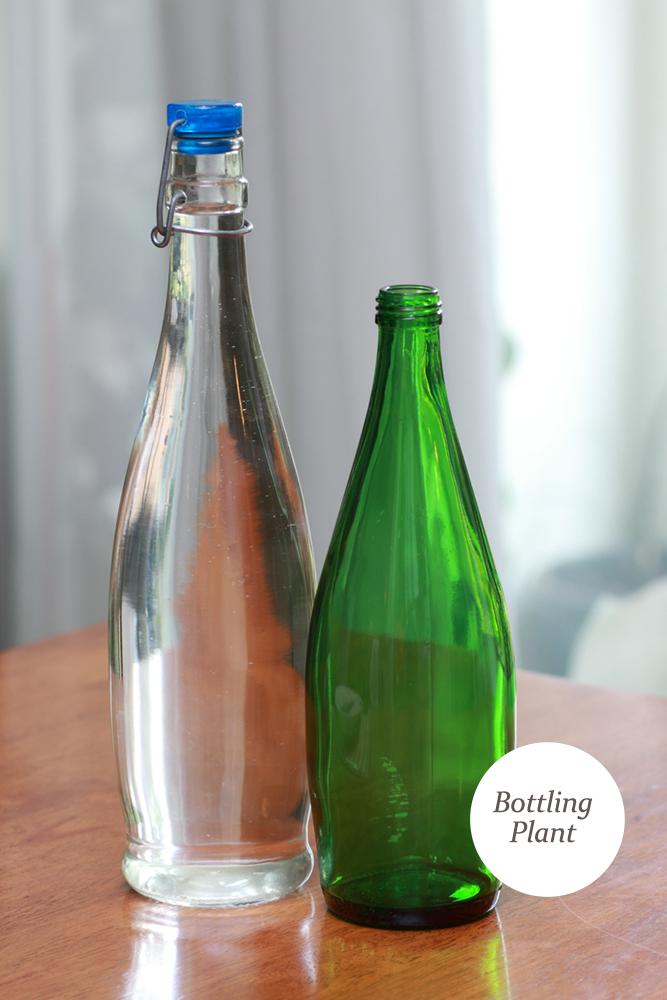Preserving the Western Ghats: A Journey of Sustainable Water Conservation at Ibnii
The Western Ghats, a pristine ecological treasure, has faced significant threats due to unsustainable development practices. With only 2% of this remarkable ecosystem remaining untouched, the consequences are dire. Landslides, flooding, and other natural disasters have become increasingly frequent, leading to loss of life and property. In contrast, Ibnii embraces the concept of sustainable development and takes proactive measures to conserve water resources. Through innovative technologies and thoughtful practices, we strive to minimize wastage and ensure optimal water utilization.
Low Flow Plumbing Fixtures
At Ibnii, we have implemented a groundbreaking solution to conserve water: Low Flow Plumbing Fixtures. These fixtures dispense mist-like water, reducing water consumption without compromising on user experience. By utilizing this innovative technology, we significantly contribute to water conservation efforts, making every drop count.
Jacuzzi Seasonality

Recognizing the paramount importance of optimal water use, our jacuzzis operate for only six months of the year. By aligning their usage with specific seasons, we strike a balance between providing a luxurious experience for our guests and minimizing water consumption. This mindful approach ensures that water resources are utilized efficiently and sustainably.
Rainwater Harvesting and Water Management

Water management lies at the core of our sustainability practices, and Ibnii boasts a comprehensive system for rainwater harvesting and treatment. We have established four rainwater catchments that collect and store rainwater, serving as a vital resource for our entire resort. Through a meticulous water treatment process, we ensure that the water used for drinking, cooking, and daily activities is of the purest quality—rainwater itself. This sustainable approach not only reduces reliance on external water sources but also promotes the conservation of precious groundwater.
Effluent Treatment Plant (ETP) and Sewage Treatment Plant (STP)
Ibnii takes great pride in its two state-of-the-art water treatment plants: the Effluent Treatment Plant (ETP) and the Sewage Treatment Plant (STP). The ETP efficiently manages water usage by treating the water from our laundry services and repurposing it for irrigation purposes, nourishing our lush greenery. The STP plays a crucial role in treating all sewage water, ensuring its safe reuse for plantation needs. By implementing these advanced treatment facilities, we not only conserve water but also minimize our environmental footprint.

Bottling Plant and Sustainable Practices
Our commitment to sustainable water practices extends to the Ibnii bottling plant. Here, glass bottles are sanitized, filled, and served to guests in their rooms, restaurants, and coffee shops. By eliminating single-use plastic bottles, we contribute to reducing plastic waste and its adverse impact on the environment. Our focus on sustainable packaging aligns with our broader mission to protect the Western Ghats’ fragile ecosystem.

Water conservation lies at the heart of India’s commitment to sustainable development. As we witness the alarming consequences of water scarcity and environmental degradation, we strive to make a positive difference. Through the implementation of innovative technologies such as Low Flow Plumbing Fixtures, responsible seasonality practices, rainwater harvesting, and advanced water treatment plants, Ibnii leads the way in water conservation efforts. By embracing these sustainable practices, we not only preserve this valuable resource but also inspire our guests and the wider community to prioritize water conservation in their daily lives. Together, let us protect our water sources and ensure a sustainable future for generations to come.
Get in touch
- 123 Ibnivalavadi Village, Boikeri, Madikeri, Coorg, Karnataka India.
- [email protected]
- Reservations: +91 80 4718 3111
- Resort board number: +91 82 7222 6700
More about us
Copyright 2023 THE IBNII COORG, RESORT & SPA
